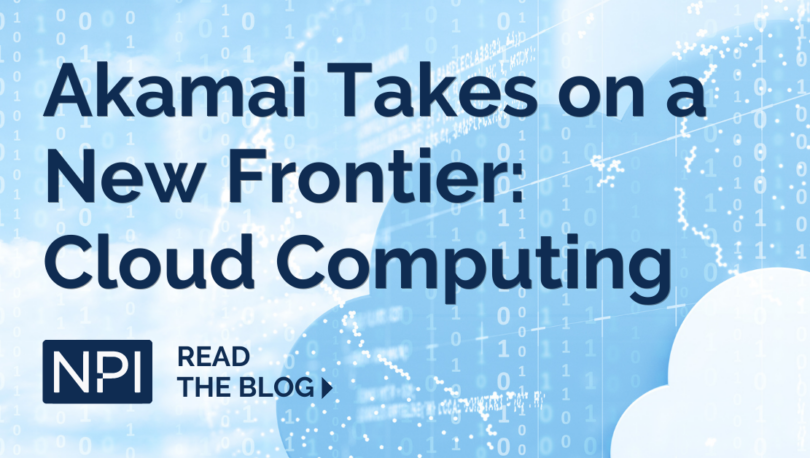Akamai, widely known for its content delivery network (CDN) and security offerings, recently made a surprising announcement. The company is entering the world of cloud computing with the launch of Akamai Connected Cloud, a massively distributed edge and cloud platform. The platform will combine cloud computing, security, and content delivery to bring applications and experiences closer to end users while delivering better protection against security threats. The launch of Akamai Connected Cloud comes on the heels of last year’s $900M acquisition of IaaS platform provider Linode LLC, and this year’s announcement to acquire cloud storage provider Ondat.
The debut of Akamai Connected Cloud signals Akamai’s entrance into a hypercompetitive cloud computing market dominated by AWS, Google Cloud Platform and Microsoft Azure. This may place Akamai more in line with Snowflake, one of the only large standalone compute vendors which could match the strengths of Akamai’s current distributed infrastructure.
For now, it’s unclear what the future holds for Akamai’s surprise announcement. But it does present an opportunity for current Akamai customers as well as any business that seeks competitive leverage in cloud computing partner conversations.
Large Akamai Shops Should Consider Reviews of Both Akamai and Existing Cloud Provider Pricing
The immediate benefit current Akamai customers can derive from this announcement is that it could be a major opportunity to review core Akamai pricing for any improvements relative to the market. Akamai is likely to offer compelling incentives to clients looking at this new offering, but it’s important to know to what degree this new leverage can be wielded in pricing discussions.
In addition to current spends around existing Akamai products, customers should take a look at any major cloud platform investments. That includes investments with AWS, GCP and Azure, as well as Snowflake. Performing IT price benchmarking on any current or upcoming deals will determine if these vendors are charging a fair price, or if their pricing is uncompetitive. If it’s the latter, Akamai may bring competitive pricing to the table. This is an obvious strategy for them to quickly build market share. Either way, it creates a compelling spend event for enterprise IT and IT procurement to review some of their core investments with Akamai and/or other major cloud platforms.
Enterprises Not Doing Business with Akamai May Want to Consider Positioning Them for New Leverage
Companies that are not in business with Akamai may want to consider evaluating the vendor’s portfolio of offerings, either as a net-new spend or as a competitive displacement for existing. This move into cloud computing signals that Akamai is positioning itself to be a more aggressive player in the market, and it could be more eager for new deals to help support this capital-intensive business.
This may be more applicable to the CDN side and other network security solutions from Akamai, as it’s a little early to tell how viable the vendor’s cloud computing solution fares until there’s more of a known response from the market. At the same time, enterprises beginning to embark on investigating cloud platforms for the first time could greatly benefit from engaging Akamai as an early adopter, even if just to show heavy hitters like AWS, GCP and Azure that anything on the table is fair game for consideration.
Organizations Only Beginning to Investigate Cloud Platforms Should Include Akamai in Conversations
It’s difficult to say how Akamai’s performance in this new sector will compare to what NPI views as a firmly established trio plus Snowflake. However, Akamai’s existing infrastructure could lend itself to a quick rise if everything (hopefully) goes to plan. This is a daunting space, so Akamai must believe it can compete with the biggest names out there to at least some degree. That will require bold tactics that could benefit existing and new customers alike. The questions remains as always: How can enterprise IT groups benefit from this market disruption? And how can they ensure they’re securing a world-class deal that supports their current and future state requirements?
Interested in learning more about NPI’s IT deal optimization services? Contact us today.
Related Content
- Blog: IT Procurement Strategy: What Types of Intel Do IT Procurement Leaders Need?
- Video: IT Procurement Negotiations – 3 Things Practitioners Can Do to Keep IT Costs in Check
- Video: Managing and Mitigating Inflation-Related Costs
- NPI Service: IT Price Benchmark Analysis & Contract Negotiation Intel
